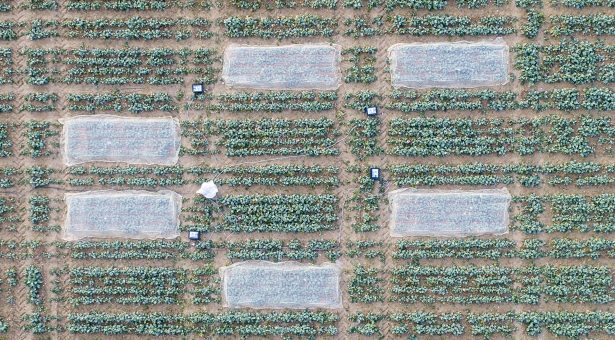Warmer early winters causes lower oilseed rape yields, study finds

Innovative experiments using temperature-controlled field plots have revealed the link between warmer early winters and lower oilseed rape yields, which could see falls of up to 25%.
A team of researchers from the John Innes Centre simulated full growing seasons in a laboratory-controlled trial and at Church Farm, the institution's outdoor site.
They established that chilling is important in late November and early December as it promotes growth during early floral development of the oilseed rape crop.
Researchers showed that OSR plants can undergo a developmental phase known as flower bud dormancy if the winter temperature is too warm.
This process occurs as the microscopic, newly formed buds lie inactive waiting for low temperatures to signal growth and is well understood in perennial plants which grow year after year.
This development stage was not known to exist in annual crops; those that complete their life cycle in one growing season.
Oilseed rape plants that were chilled at this key developmental stage developed faster and were higher yielding, producing more seeds per pod.
However, plants grown in warmer conditions grew slowly and were lower yielding.
The differences in conditions during this important weather window account for a variation of up to 25% of total yield, John Innes Centre's trials showed.
Professor Steve Penfield, a group leader at the centre said: “It was surprising to find that winter annuals have this flower bud dormancy – no one has ever suggested that this mechanism is important to flowering time control in annual plants.
"Our experiments further show that if flower buds experience warmer than average temperatures then growth slows down and plants produce aberrant flowers and low yield.
"Conversely, we know that if plants get chilled at this stage this promotes faster growth and higher yield.”
First author of the paper, Dr Carmel O’Neil said researchers sought to understand the effect of climate change on UK crop yields.
"To predict these effects and respond to them we must understand all the processes by which varying weather affects yield.
"And that is what we have done here in this study – proving experimentally what we have seen previously in correlated studies.”
In what is believed to be a unique set of experiments, the researchers used indoor Controlled Environment Rooms programmed to simulate a winter annual growing season based on weather data collected from a farm.
Following the indoor, laboratory-controlled trial, the team moved the experiment to a field trial, using a heated field plot system outdoors at Church Farm.
The results from both the laboratory and the field trials were the same, warmer conditions led to slower growth and reduced yield.
Professor Penfield added: “We had seen this correlation between chilling and yield in the data, but until now we could not say that chilling was linked to the physiology of the crop – it is not for example that chilling just kills some disease or pest – although it might do that as well.
"But we now know why chilling influences yields and it is down to physical effect on the growth rate of the plants.”








